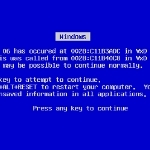![]()
By Windows Talk
3 Alternatives to Microsoft Excel
Elton has been only using Microsoft Excel for almost a month now. His work as a research assistant requires him to utilize this software to encode statistical data and study records. Before this, Elton had never used Microsoft Excel.
His project now consists of entering data of 50,000 people including their basics information like name, age, birth date, and address. Elton is having a hard time understanding the basic formulas and functions, and asks if there are alternatives to Microsoft Excel.
When looking for an alternative, one has to figure out first what exactly one wants and do not want from his or her product. In spreadsheets like Microsoft Excel, it is tricky because all other spreadsheets may look the same (cells, rows, columns, and all), especially for Elton who is a beginning user.
In essence, all spreadsheets are the same in that they help organize and analyze data. The main difference between Microsoft Excel and other spreadsheets is the interface.
Excel’s popularity is due to its interface being the most user-friendly. Other than that, tasks and operations that are basic for spreadsheets are readily available to all.
Here are few alternatives to Excel:
1. Apache OpenOffice Calc. As part of the Apache OpenOffice suite, Calc is an open source software with similar features to Microsoft Excel, but has added features that are not present in Excel like automatic graphing definitions of data from tabular form.
One of its most prominent features is its capability to save directly a file in PDF format. Aside from PDF, files can also be saved in other formats like CSV, HTML, SXC, DBF, DIF, UOF, SLK, SDC, and more.
With this and it being an open source application, OpenOffice Calc is the most suitable spreadsheet for a cross-platform usage, functional in Windows, Mac, and Linux.
2. LibreOffice Calc. The LibreOffice was developed as a branch off from OpenOffice. LibreOffice’s features are similar to that of Apache OpenOffice Calc’s: can be saved in different formats, cross-platform usage, and open source.
It is the fastest among spreadsheets, the most compatible with Microsoft Excel, and is the default spreadsheet of most Linux-based operating systems, like Ubuntu, Fedora, and Debian. Its most distinct feature is the Pivot Table, which is an improved version of Pivot Table found in MS Excel.
Shared with permission from Windows Talk.




